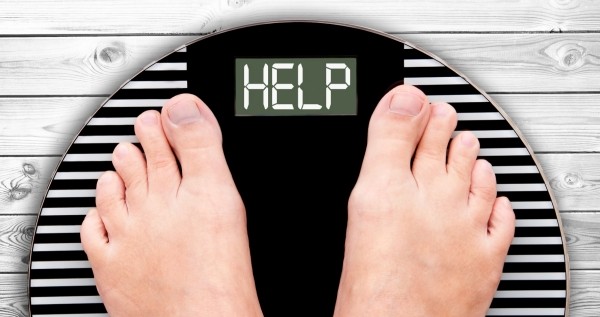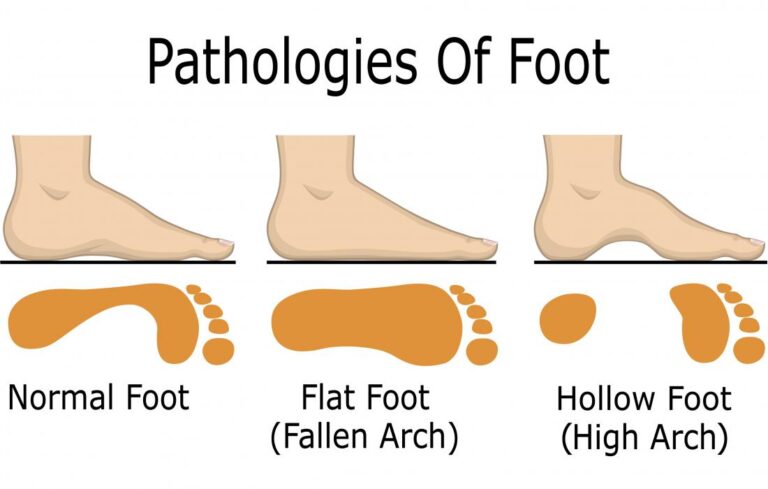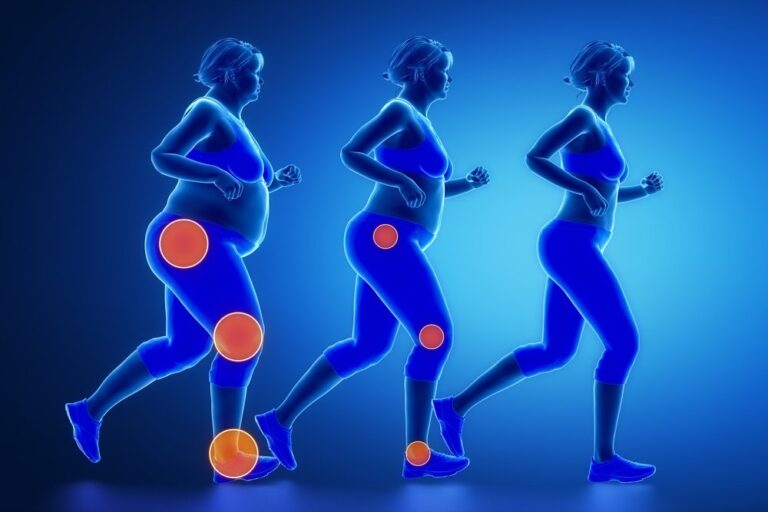Obesity is one of the biggest health problems in today’s world. The lower limbs and feet bear the burden of being overweight.
Being overweight and obese, increases the pressure on your feet, ankles and lower limbs. Obesity and being overweight commonly leads to arthritis, foot pain and skin problems on the feet. This creates a vicious cycle of gaining weight that causes difficulty to stay mobile and exercise resulting in further weight gain. This makes it harder to lose weight and regain good health.
A podiatrist would help you to address and overcome any foot problems and pain you are experiencing. They would devise a treatment regime so that you can stay as mobile as possible and experience a better quality of life.
There is an increased risk of wear-and-tear problems including arthritis, tendonitis and heel pain along with risk of developing type II diabetes that impact your feet. If you are experiencing painful feet on a regular basis it is advised not to ignore it as there is always something that a podiatrist can do to help you.

PROBLEMS ASSOCIATED WITH OBESITY AND FEET
Overweight and obese people experience pain, and exhaustion that makes exercise more difficult. Obese people prone to ankle sprains that restricts mobility. Various other problems include:
- Changes in the size of your feet: overweight puts pressure on the feet causing it to splay and become wider along with flattening the arch of the foot. This is common in childhood as the bones in children haven’t hardened. Thus, if a child is overweight the arch of the foot can flatten resulting in change of whole foot structure. It is crucial to wear a comfortable, well-fitting shoe. To avoid flat feet it is advised not to try and squeeze your feet into narrow shoes that rub or pinch.
- Gout: This develops due to increase in uric acid in blood. Obesity leads to high BMI. BMI increases the risk of gout as it leads to high serum uric acid level. Being overweight or obese increases your risk of developing gout. Uric acid is excreted through the kidneys. But, crystals can be formed in joints causing inflammation and pain.
- Osteoarthritis: It is the most common form of arthritis caused by stress to the cartilage in the joints. This results from an injury or wear and tear. Being overweight increases the pressure on the joints, mainly on your feet. Obesity increases the chances of developing symptoms including stiffness, pain and inflammation.
- Type 2 Diabetes: Being overweight increases the risk of developing Type 2 Diabetes. This results in your body unable to produce enough insulin to function properly, or the body’s cells become insulin resistant. Diabetes has a significant impact on your feet resulting in nerve damage or neuropathy. This leads to losing the ability to feel sensations in the feet such as heat or pain. Neuropathy can also cause poor blood supply that reduces the skin’s ability to repair when damaged and alter the body’s immunity. This puts the feet at greater risk of becoming infected.
- Foot pain: Obesity causes a disturbance while walking causing foot pain. The bones, muscles and tendons in your feet are not able to carry excess weight putting strain on the foot. The strain would cause tenderness, swelling and pain. Foot pain occurs due to underlying medical condition such as:
- Posterior tibial tendonitis: pain in the tendon running along the inside of the ankle and the foot
- Plantar fasciitis: an inflammation in the thick ligamentous connective tissue running from the heel to the ball of the foot
- Hindfoot arthritis: This causes inflammation and pain in the back part of the foot.
- Hallux Valgus or Bunions: It is a forefoot deformity known as bunion. It is characterized by the sideways migration of the big toe toward the second toe. It also results in protrusion on the outside of the big toe. The lateral bend consequently results in a bump appearing red, is painful, as well as causes pain while wearing footwear. Overweight and obese people are at an increased risk of developing bunions.
- Hammertoe: This foot deformity is caused due to the imbalance of muscles, tendons, and ligaments around your toe joint. This commonly occurs in the middle three toes, causing the middle joint of the toe to bend abnormally. The hammertoe will begin to become rigid, painful, and immovable due to ill-fitting shoes. This might also be caused from flatfooted or obese people.

OBESITY IN CHILDREN
Foot pain due to obesity can also affect children later on in life. Being overweight can affect their physical development. Pediatric obesity also increases the risk of stress fractures, flat feet and Sever’s disease. This can result in calf or arch pain. Additionally, excess weight can result in a higher disproportional load and impact on the mid foot area. A reduction of the foot arch index, also results from excessive foot loading.
TREATMENT OPTIONS
Your foot health is one more reason to lose weight. Losing weight should be done safely by following a healthful diet and engaging regularly in physical activity.
You should consult a dietician for a healthy diet and also engage in physical activities to increase your metabolism.
Losing weight is usually difficult when dealing with heel pain or other symptoms. A podiatrist may recommend nutritional counseling and recommend a professional trainer or physical therapist to help develop an exercise program for you.
Podiatrist can also provide custom orthotics that provide cushioning and stability for painful foot and ankle symptoms. Podiatrist advice exercises to stretch and strengthen your feet and ankles. Anti-inflammatory medications are helpful in some cases anti-inflammatory to provide relief.
A surgical procedure, such as gastric banding or gastric bypass, are helpful in reducing excess fat. The surgeon will suggest a large amount of weight loss ranging from 40 to 100+ lbs before performing the surgery. Diet modification along with exercise, such as walking, is vital for healthy weight loss which is difficult with foot pain. Podiatrists would also advise on shoe selection, stretching and orthotics to keep you active and help you reach your goals.
 PREVENTION
PREVENTION
If you are obese you would find it difficult to reach your feet. Overweight patients are not able to wear comfortable shoes due to less mobility. They often wear shoes with little or no support or flip-flops. Supportive footwear is suggested by a podiatrist to prevent damage to the feet and ankles before painful symptoms manifest.
Painful feet and ankles force you to avoid exercise, leading to additional weight gain. Engaging in a healthy amount of physical activity on a regular basis is key to your overall health and helps prevent obesity-related foot problems.
OUTLOOK
Obesity affects the entire body, but its effects on the feet are often ignored. The effects on the feet are painful and potentially life-altering. Obesity is not a concern to be dealt with using a single-pronged approach. If a person is serious about tackling weight issues and looking after their body, taking care of the feet is an utter necessity. Wearing comfortable shoes providing arch support as well as preventing pronation is the most effective way. But in the end, weight loss is the only real solution.
If you or anyone you know is suffering from foot problems, our expert providers at Specialty Care Clinics will take care of your health and help you recover.
Call us on (469) 545-9983 to book an appointment with our specialists.
